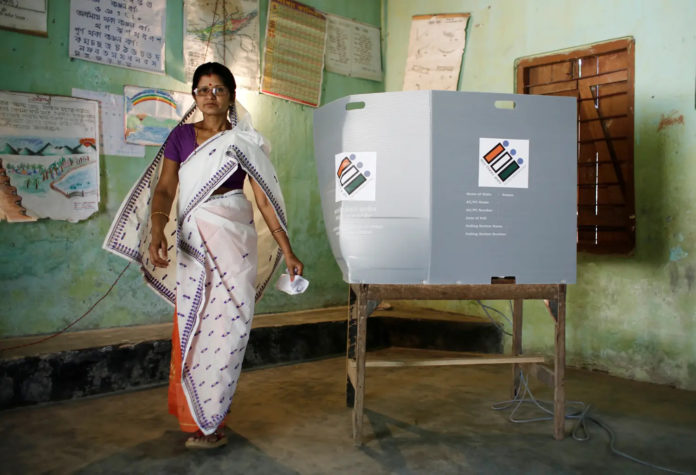More than 600 million Indians exercised their right to franchise in the recently held elections. Mainstream media unanimously predicted a crushing victory for Modi’s Bharatiya Janata Party (BJP) and the National Democratic Alliance (NDA). However, the actual results shook the length and breadth of India. Proclaiming the demise of Hindutva politics, the people rejected the ultra-right-wing rhetoric of the BJP and welcomed inclusive parties that addressed local issues.
The biggest development was the outright denunciation of religious politics by the Indian nation. This is evident in the BJP’s losses in strongholds of the Hindi Belt like Uttar Pradesh (UP) and Maharashtra. The BJP lost in UP to the Samajwadi Party (SP) of the Indian National Developmental Inclusive Alliance (INDIA). This came as a surprise to many, as UP is considered a BJP stronghold under Chief Minister Yogi Adityanath. SP’s Awadhesh, who belongs to the Dalit community, even defeated the incumbent BJP candidate in the Faizabad constituency of Ayodhya, where the Ram Mandir is located. This is a clear illustration of the rejection of temple politics by UP voters. The Ram Mandir, touted as a flagship project of Modi’s BJP, was believed to guarantee their victory in these elections. However, the people have spoken that they will no longer be swayed by religious rhetoric and politics of divide alone and want their politics to revolve around socio-economic concerns and human development. The people have vetoed the destruction of homes, lives, and livelihoods without compensation for the creation of the Ram Mandir. The BJP also conceded defeat in Maharashtra, with the INDIAN alliance taking the lead, proving that breaking up opposition parties cannot guarantee victory, as BJP lost even after splitting the two major parties: Shiv Sena and the Nationalist Congress Party (NCP).
The surprising election results shed light on another important aspect of Indian politics other than North and South divide: the rural-urban divide. Most BJP voters were from urban centers, as evidenced by BJP’s sweep in places like Delhi. This is because mainstream media, termed ‘Godi Media’ by critics, is prevalent in urban centers, consumed by the urban populace which are bombarded by BJP propaganda day-in and day-out. Conversely, the rural masses, who lack such engagement with the media and live hand-to-mouth, are more concerned with local issues. The rural vote bank rejected the BJP, contributing significantly to Modi’s upset.
For the first time in over a decade, the BJP does not hold a majority in the Indian parliament, which could cause difficulties for Modi, known for his centralized leadership style. Not having a simple majority means he will have to keep his allies happy. This is challenging as Nitish Kumar of Janata Dal (JD) and Chandrababu Naidu of the Telugu Desam Party (TDP) are hawkish politicians and will hold significant clout in the NDA coalition. Prime Minister Modi will have to acquiesce to their demands, which may be difficult given their secular outlook and significant Muslim support. The TDP will also resist the delimitation of electoral boundaries that weaken the Southern states, as planned by the BJP. Thus, the road ahead is likely to be turbulent for the NDA. Modi has never worked with a coalition in this manner and must tread carefully. Even Atal Bihari Vajpayee, with his accommodating personality, lost a No Confidence Motion in 1999 by just one vote when Jayalalithaa left the NDA. Vajpayee returned in the next elections and ran a coalition government for another term, but Modi is not Vajpayee and is not known for his accommodating personality. Modi’s ability to navigate this new setup remains to be seen.
Overall, the opposition is pleased with their performance, despite hiccups in Delhi. Their test will be maintaining the INDIA alliance in the turbulent times ahead. With these elections, democracy has been strengthened in India, and a much weaker BJP will no longer be in a position to bulldoze legislation through Parliament. The opposition has regained much of the ground it lost in the previous decade and can move forward from here.




